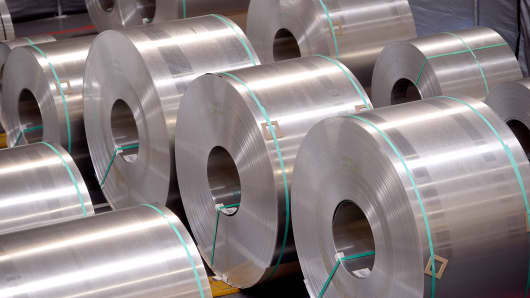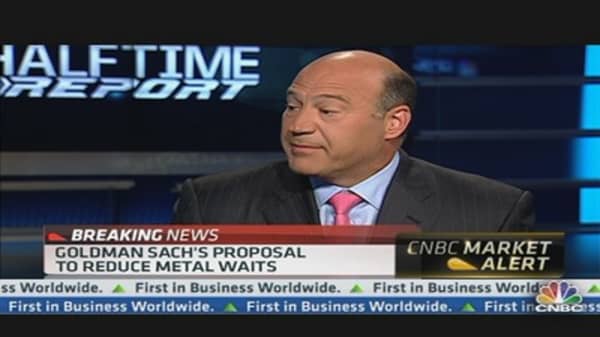Goldman Sachs said Wednesday it will make changes to its commodities warehousing business to reduce concerns that the warehouses are limiting the supply of aluminum.
"In light of those concerns, we are making certain suggestions to improve the LME system and are taking unilateral action to help any end users who have metal in the queue at Metro warehouses," Goldman said in a statement.
Goldman has proposed increasing the size of metal outflows from storage under London Metal Exchange rules, establishing priorities for metal consumers over other storers, allowing consumers in need to advance in line and enhancing transparency about ownership of LME metals.
"We are consulting with the metals trade and industry on a proposal to amend the delivery out obligations of warehouse companies with long queues, and we encourage market users to contact us with their views," the LME said in response to the proposal.
Goldman's proposals come after increased regulatory scrutiny of Wall Street's commodities warehousing activities and an announcement from JPMorgan that it was looking for "strategic alternatives" for its physical commodities business.
Goldman and other financial institutions have been accused of inflating aluminum prices through their warehousing activities as customers have reported excessive wait times to get access to their metal, ultimately costing consumers billions of dollars.
"We feel horrible for consumers if they can't get metal. We don't believe that to be the fact," Gary Cohn, Goldman Sachs president, told CNBC. The bank has offered to deliver physical metal to consumers when needed, but none have taken it up on the deal, he said.
Goldman will stay in the commodity hedging business, he said.





